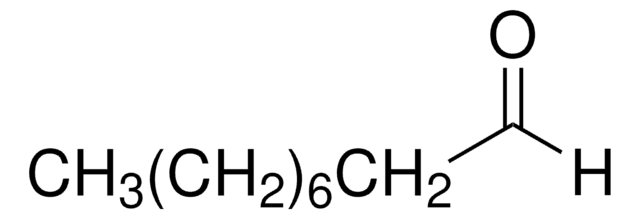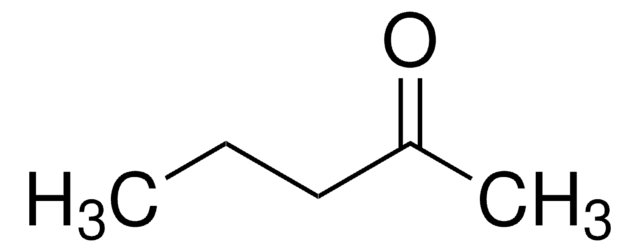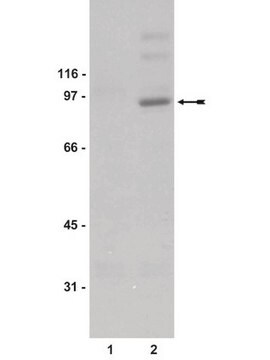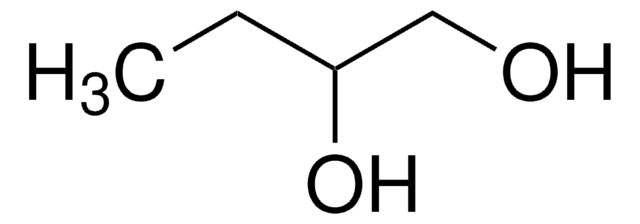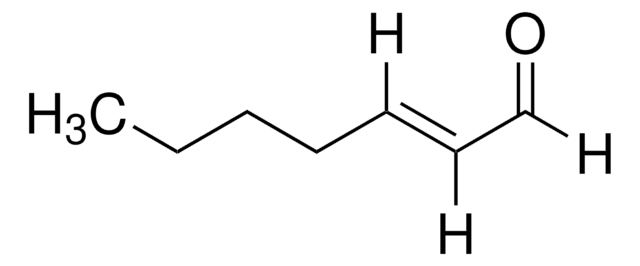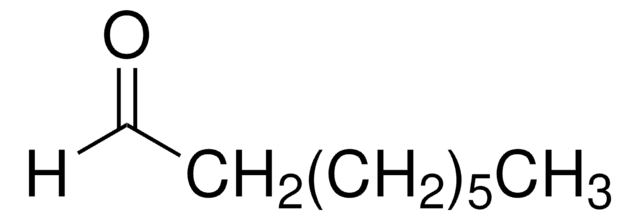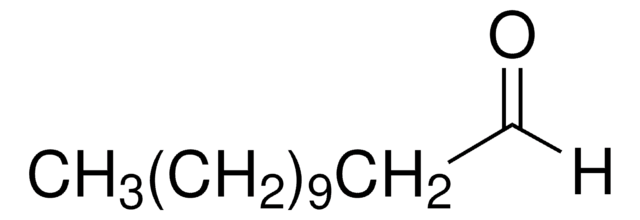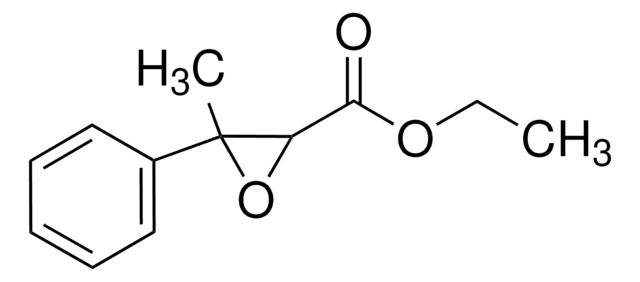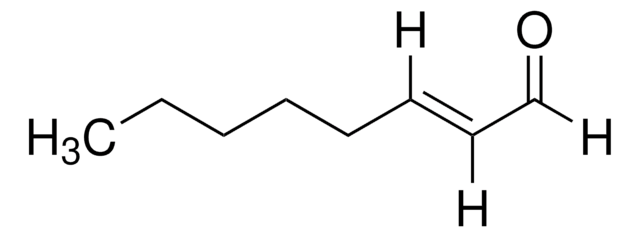W278203
Nonanal
≥95%, FCC
Synonym(s):
Aldehyde C9, Nonyl aldehyde, Pelargonaldehyde
About This Item
Recommended Products
biological source
synthetic
Quality Level
grade
Halal
Kosher
agency
meets purity specifications of JECFA
reg. compliance
FCC
FDA 21 CFR 172.515
vapor pressure
~0.26 mmHg ( 25 °C)
assay
≥95%
may contain
<0.10% alpha-tocopherol, synthetic as stabilizer
refractive index
n20/D 1.424 (lit.)
bp
93 °C/23 mmHg (lit.)
density
0.827 g/mL at 25 °C (lit.)
application(s)
flavors and fragrances
documentation
see Safety & Documentation for available documents
food allergen
no known allergens
organoleptic
fatty; fresh; green; citrus; waxy
SMILES string
CCCCCCCCC=O
InChI
1S/C9H18O/c1-2-3-4-5-6-7-8-9-10/h9H,2-8H2,1H3
InChI key
GYHFUZHODSMOHU-UHFFFAOYSA-N
Looking for similar products? Visit Product Comparison Guide
General description
Application
- Characteristics of Purified Horse Oil by Supercritical Fluid Extraction with Different Deodorants Agents.: Investigates the efficacy of Nonanal as a deodorizing agent in the purification of horse oil, exploring its potential to improve the sensory qualities of cosmetic products derived from animal fats (Anneke et al., 2024).
- Characterization of the aroma-active compounds in Xiaokeng green tea by three pretreatment methods combined with gas chromatography-olfactometry (GC-O).: Utilizes Nonanal to identify and characterize the aroma-active compounds in green tea, enhancing understanding of tea flavor chemistry and consumer preferences (Gan et al., 2024).
Biochem/physiol Actions
Disclaimer
signalword
Warning
hcodes
Hazard Classifications
Aquatic Chronic 3 - Skin Irrit. 2
Storage Class
10 - Combustible liquids
wgk_germany
WGK 1
flash_point_f
147.2 °F - closed cup
flash_point_c
64 °C - closed cup
ppe
Faceshields, Gloves, Goggles, type ABEK (EN14387) respirator filter
Certificates of Analysis (COA)
Search for Certificates of Analysis (COA) by entering the products Lot/Batch Number. Lot and Batch Numbers can be found on a product’s label following the words ‘Lot’ or ‘Batch’.
Already Own This Product?
Find documentation for the products that you have recently purchased in the Document Library.
Customers Also Viewed
Protocols
-3,7-Dimethyl-2,6-octadien-1-ol; Neral; Geraniol; Geranial; Undecanal; Citronellyl acetate; Neryl acetate; 3,7-Dimethyl-2,6-octadienyl acetate; 1-Tetradecene; Tetradecane; α-Bisabolol
-β-Farnesene; α-Huµlene; Germacrene D; (+)-Valencene; Bicyclogermacrene; (+)-δ-Cadinene
Our team of scientists has experience in all areas of research including Life Science, Material Science, Chemical Synthesis, Chromatography, Analytical and many others.
Contact Technical Service